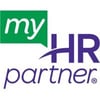We cannot escape news about the rapid increases of mental health diagnoses, suicides and opioid addictions. Nowhere is immune. In fact, every day our workplaces are dealing with the havoc these issues wreak.
A look at the issues
According to the National Institute of Mental Health, one in five adults in the U.S. experiences mental illness in a given year. In addition, we also see “sandwich generation” workers who care for both kids and elderly parents with mental or physical health needs. Often these caregivers have limited or no access to help. If they also battle addiction or mental health issues of their own, the problems are compounded even further.
Workplaces reflect the world we live in. It’s no wonder that we see the devastating effects of the rise of suicide rates in our places of employment. The Economist reported that number of suicides in this country has grown at an alarming rate, with the Centers for Disease Control reporting that America’s suicide rate increased by 25 percent between 1999 and 2016. This problem is also echoed in World Health Organization studies.
Opioid addiction has had a devastating effect on workplaces here and across the country. A recent National Safety Council survey found that 70 percent of employers reported being affected by prescription drug abuse, including absenteeism, positive drug tests, injuries, accidents and overdoses.
These numbers are alarming. As opioid pain medications are being so readily prescribed, we are seeing more and more people who normally would not get involved in drug use becoming unexpectedly addicted.
The workplace on the frontlines
The effects of mental illness and addiction generally permeate one’s life, so they often show up in the workplace in addition to the home. While symptoms like diminished performance, absenteeism and changes in personality can indicate a problem, getting to the cause and assisting isn’t easy.
“Employees hold off on sharing these issues with their employers, and do not have to since this is protected information,” says Joe Bosche, senior vice president of business development at IBH, a company delivering confidential psychosocial and managed behavioral health services to employees. “And the employer is left with limited options on how to approach the employee.”
It is understandable why employees would be concerned with how sharing this information may affect their employment status. Joe recommends that employers consider how their culture presents itself to employees in terms of offering a safe company official or department to go to for help. Breaking the stigma of mental health issues and addiction can also make earlier interventions more likely.
Management often must navigate these situations with limited knowledge or skills on how to proceed in compliance with the law as well. Employees have gained more rights and protections over the last few decades via the Health Insurance Portability and Accountability Act (HIPAA) and Americans with Disabilities Act. It can be a tricky topic to handle in the workplace.
Businesses can provide mental health and substance abuse coverage to employees as part of their health insurance plans, and most do. But they can lean on their HR departments to respond appropriately should they become the point-of-contact for employees seeking help. Properly trained, HR can help employees by connecting them with needed services, and by keeping communications strictly confidential.
Employee Assistance Programs
To help employees deal with mental health and substance abuse issues before they get too big, many employers turn to Employee Assistance Programs. These work-based intervention programs assist employees in resolving personal problems that can adversely affect their performance. EAPs provide access to trained professionals who can guide them via a phone call anonymously from the employer. Several hours of professional support are frequently included with these programs as well.
Employers can also use EAPs to ask trained mental health professionals and doctors about how to manage specific issues, including advice on how to approach someone, manage the conversation legally and direct the employee to local support options available.
Employees with a mental health situation should check what their health care plan covers and if an EAP is available. If employees need to inform management or the HR department, such as in the case of a leave of absence, they should share the minimal amount of information and documentation — and leave the details with their health care team. Although discriminating against these types of mental health issues are often covered by the ADA, there is unfortunate reality that some employers can find ways around it, illegal or not.
Often, reasonable workplace accommodations can be worked out so that employees remain a productive and healthy part of the team.


